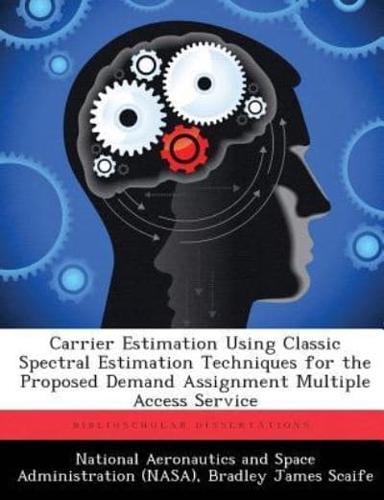Publisher's Synopsis
In any satellite communication, the Doppler shift associated with the satellite's position and velocity must be calculated in order to determine the carrier frequency. If the satellite state vector is unknown then some estimate must be formed of the Doppler-shifted carrier frequency. One elementary technique is to examine the signal spectrum and base the estimate on the dominant spectral component. If, however, the carrier is spread (as in most satellite communications) this technique may fail unless the chip rate-to-data rate ratio (processing gain) associated with the carrier is small. In this case, there may be enough spectral energy to allow peak detection against a noise background. In this thesis, we present a method to estimate the frequency (without knowledge of the Doppler shift) of a spread-spectrum carrier assuming a small processing gain and binary-phase shift keying (BPSK) modulation. Our method relies on an averaged discrete Fourier transform along with peak detection on spectral match filtered data. We provide theory and simulation results indicating the accuracy of this method. In addition, we will describe an all-digital hardware design based around a Motorola DSP56303 and high-speed A/D which implements this technique in real-time. The hardware design is to be used in NMSU's implementation of NASA's demand assignment, multiple access (DAMA) service.











